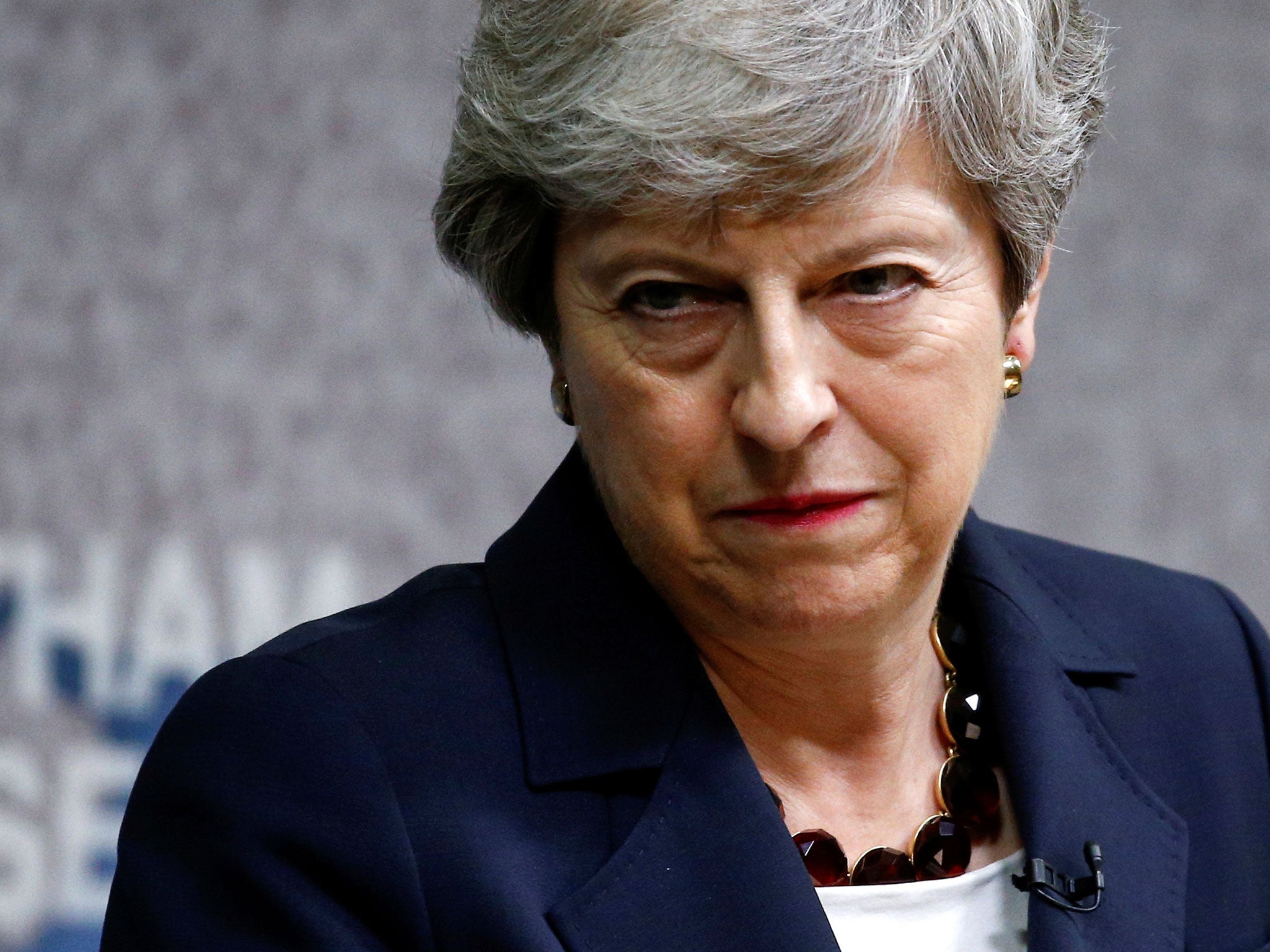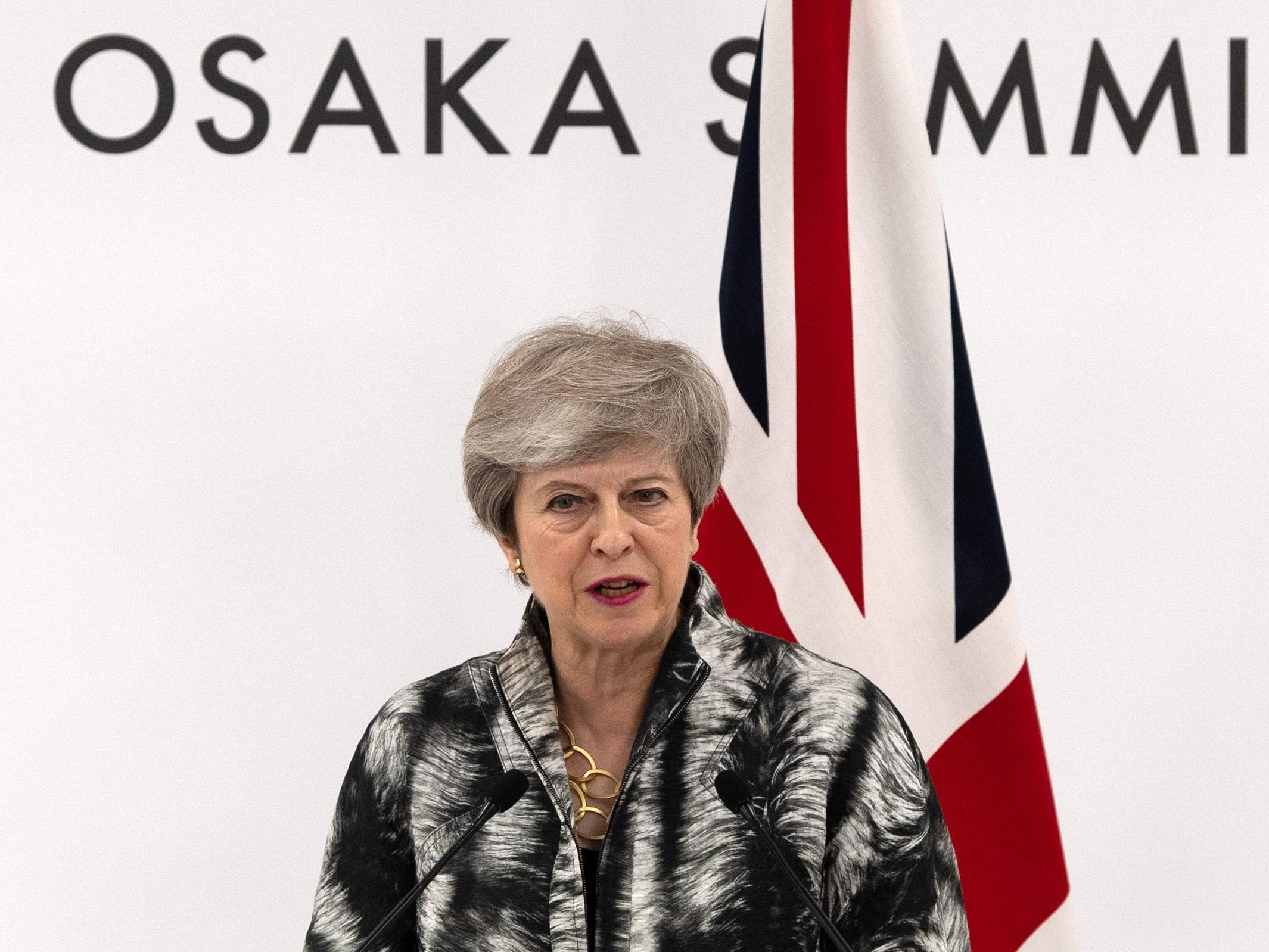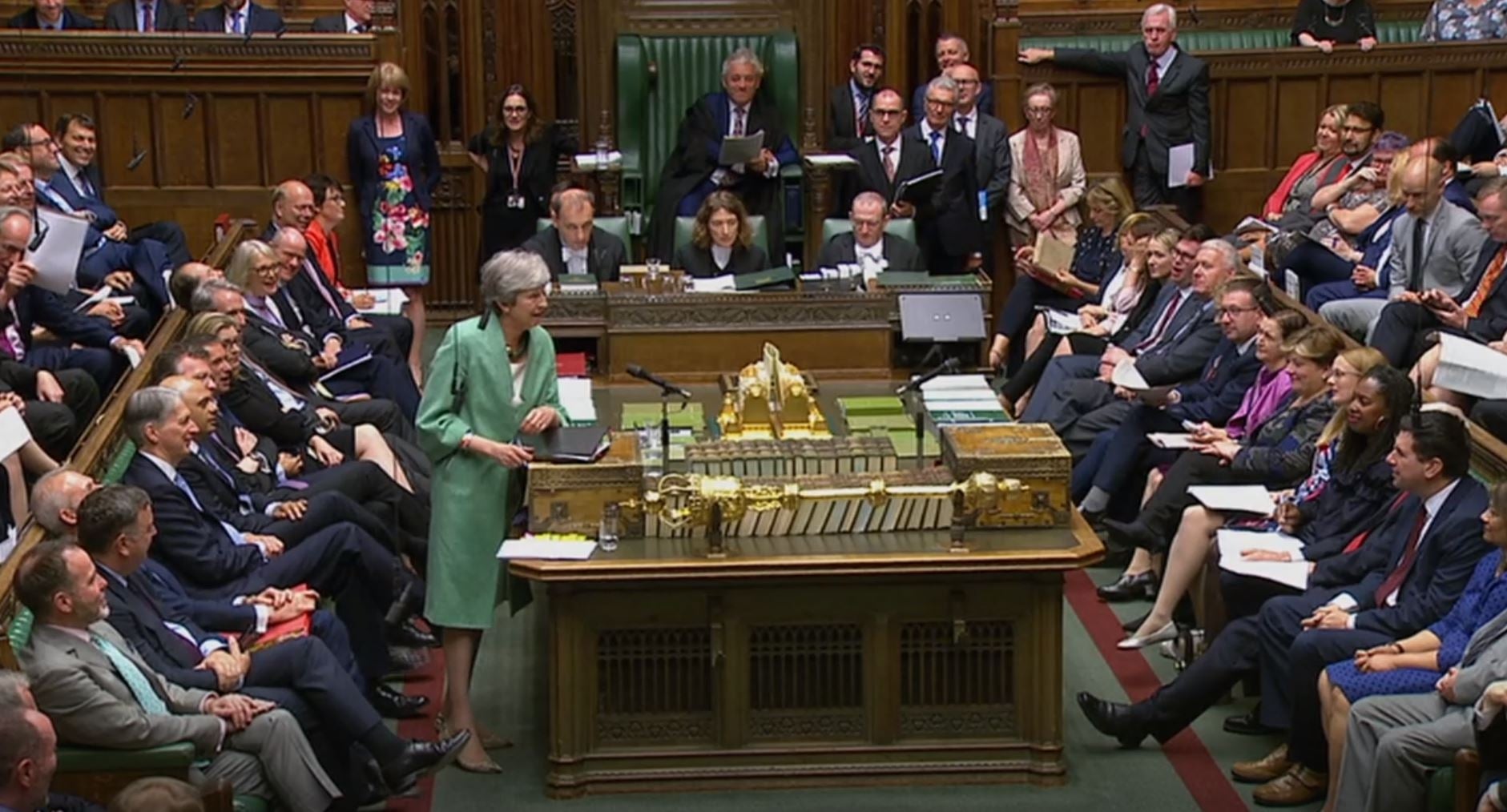Theresa May: The long goodbye of the prime minister brought down by Brexit
Theresa May spent her final weeks in power doggedly trying to forge a legacy

It has been the longest of goodbyes.
From her tearful announcement outside Downing Street on 24 May that she was stepping down as Conservative leader to the final handover of power to the new prime minister, Theresa May hung on to office for 61 days.
And May did not treat her notice period as gardening leave, instead keeping her nose to the grindstone as she tried to salvage some sort of a legacy from a three-year period in power which has been dominated – and finally destroyed – by Brexit.

She rushed out announcements on policies ranging from mental health to “tiny” homes, created a new Office for Tackling Injustices and committed the UK to what could be an eye-wateringly expensive target to reach net-zero carbon emissions by 2050.
And she kept up a busy round of international duties, sitting down with global leaders at the G20 summit in Japan, the European Council in Brussels and the Western Balkans Summit in Poland as if she was in it for the long run. She even sat through three days of discussions with EU leaders about the appointment of new presidents of the European Commission and Council, even though her own spokespeople said she would not intervene in the decision.
One cabinet minister said that May had kept up a constant round of meetings and decisions to such an extent that she appeared to be “in denial” about her imminent political demise.
While insiders said husband Philip was clearly “demob happy” and looking forward to seeing his wife retreat from the front line, May herself displayed her trademark devotion to duty to the last.
At the first cabinet meeting after her announcement that she was standing down, May shocked colleagues by not even mentioning her future, but simply getting down to the business on the agenda as if nothing untoward had happened.
“We were all expecting a few words from her about it, but it was straight down to business,” said the cabinet minister.
“She has kept her head down and kept working as if she didn’t know she was leaving. We have meetings where she talks about things that need to be done by October, and you think, ‘You’re not even going to be here in October.’
“I think she’s in denial. There’s been no let-up at all. I wonder when it will actually hit her.”

The frenzy of activity put her at odds with Philip Hammond, the chancellor, who signalled that he was ready to quit if she pressed ahead with lavish plans for a £27bn injection of cash into education.
In stark contrast to his neighbour, the occupant of 11 Downing Street seemed to relish the new freedom that came with knowing he would be sacked within weeks, speaking out candidly about the dangers of no-deal Brexit and even rebelling for the first time in his 22 years as an MP in order to stop Boris Johnson suspending parliament.
Despite the activity of their boss, it was clear that staff at No 10 felt the effects of power leaking away during her final weeks in office. “It’s been odd,” said one. “There is still a lot for us to do but the phones just aren’t ringing as much as they used to.”
The House of Commons, too, has seemed devoid of purpose, with MPs disengaged as they await the new regime. Prime Minister’s Questions – usually the highlight of the parliamentary week – has become a listless affair, with the benches half-empty as the PM and Jeremy Corbyn exchange ritualised insults.

Her determination that Corbyn should not follow her into No 10 became a relentless theme of her public utterances, as did her pleas for her successor to deliver a “sustainable” Brexit that will “bring our country back together”.
She sometimes seemed unable to hide her bitterness at those in her own party – including Boris Johnson – who dashed her hopes of going down in history as the PM who delivered Brexit.
Again and again she pointed out that the UK would have left the EU months ago if her own party’s Brexiteers had voted for the withdrawal agreement she worked so long and hard on and which she still insists was the best deal available.
But throughout it all, she kept true to her pledge not to reveal who she favoured as her successor – to the extent that she did not even tell husband Philip which way she voted.
Only occasionally did she allow herself to relax – dancing to ABBA at the Henley Festival and inviting England’s victorious World Cup cricketers into Downing Street.
Theresa May dances to ‘Dancing Queen’ at Henley Festival
Otherwise, her mask of steely determination has slipped only once, when her voice broke as she spoke outside Downing Street about her pride in serving “the country I love”. In a valedictory TV interview, she voiced irritation at the commentary her tears provoked, insisting the response would not have been the same if she was a man.
After visiting the palace and offering her resignation to the Queen, this most private and undemonstrative of prime ministers may finally be able to step back and acknowledge the full impact of her unceremonious removal at her own party’s hands.
Subscribe to Independent Premium to bookmark this article
Want to bookmark your favourite articles and stories to read or reference later? Start your Independent Premium subscription today.
Join our commenting forum
Join thought-provoking conversations, follow other Independent readers and see their replies
Comments